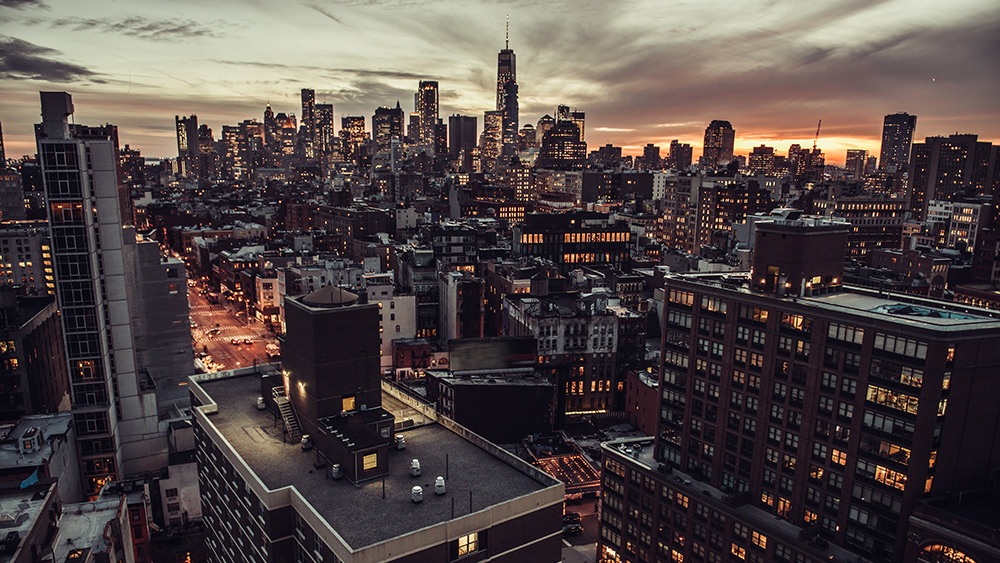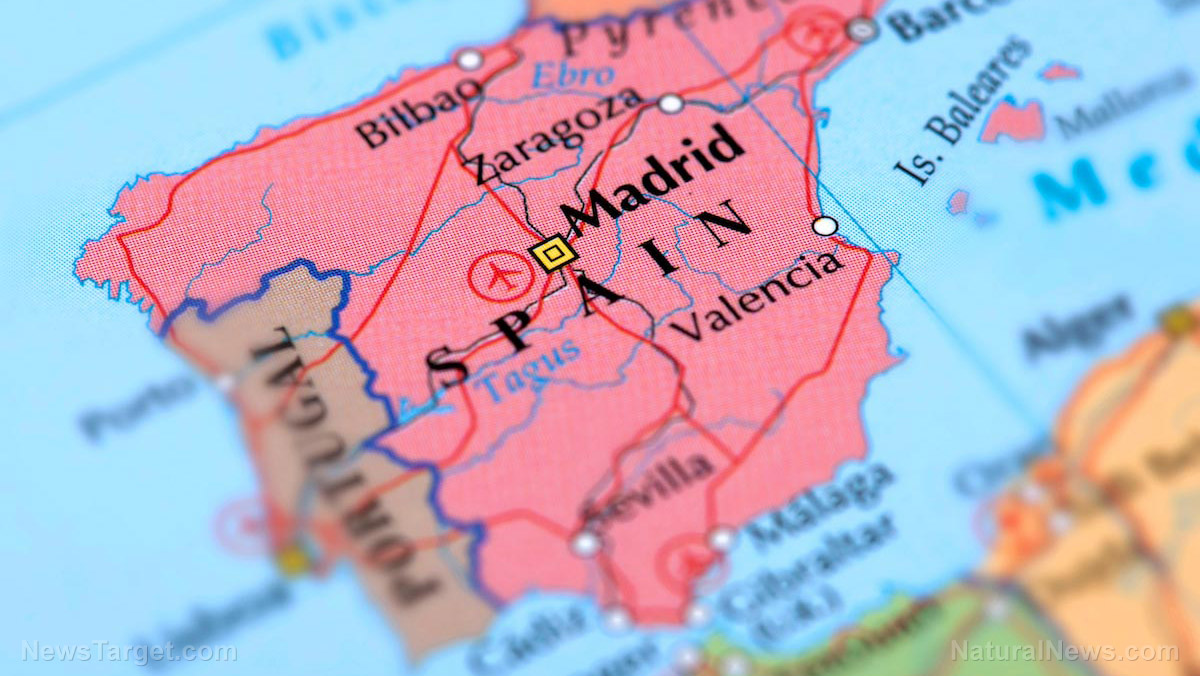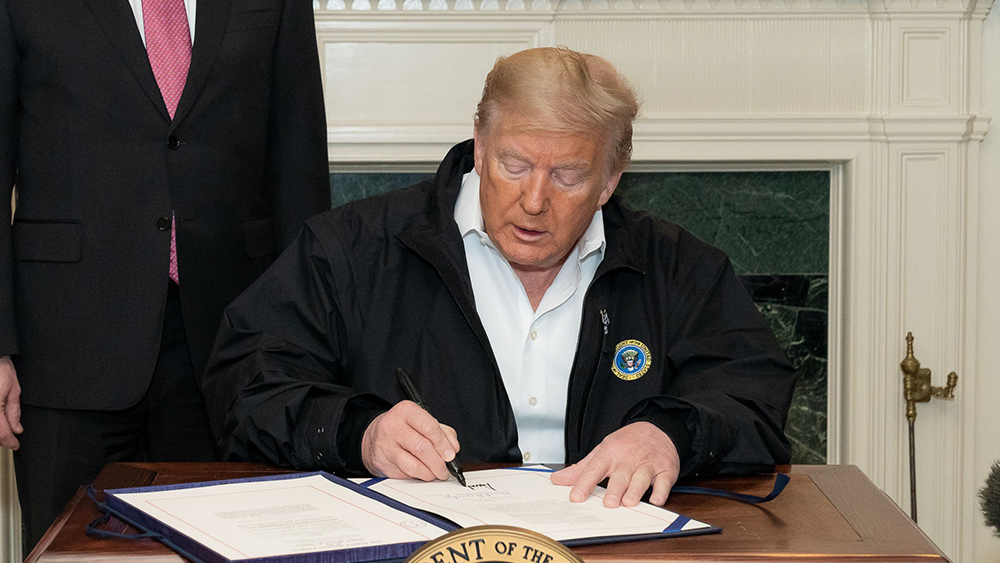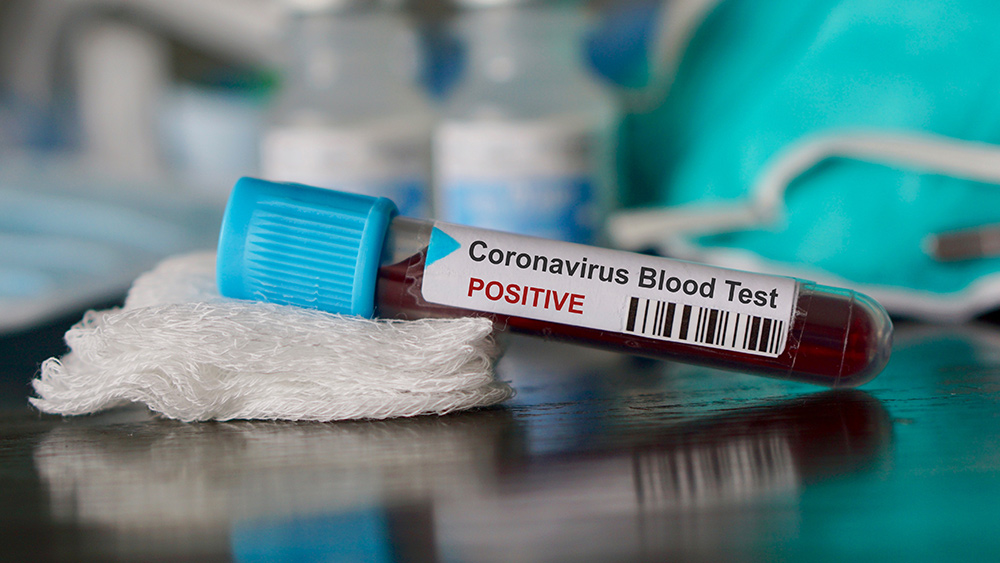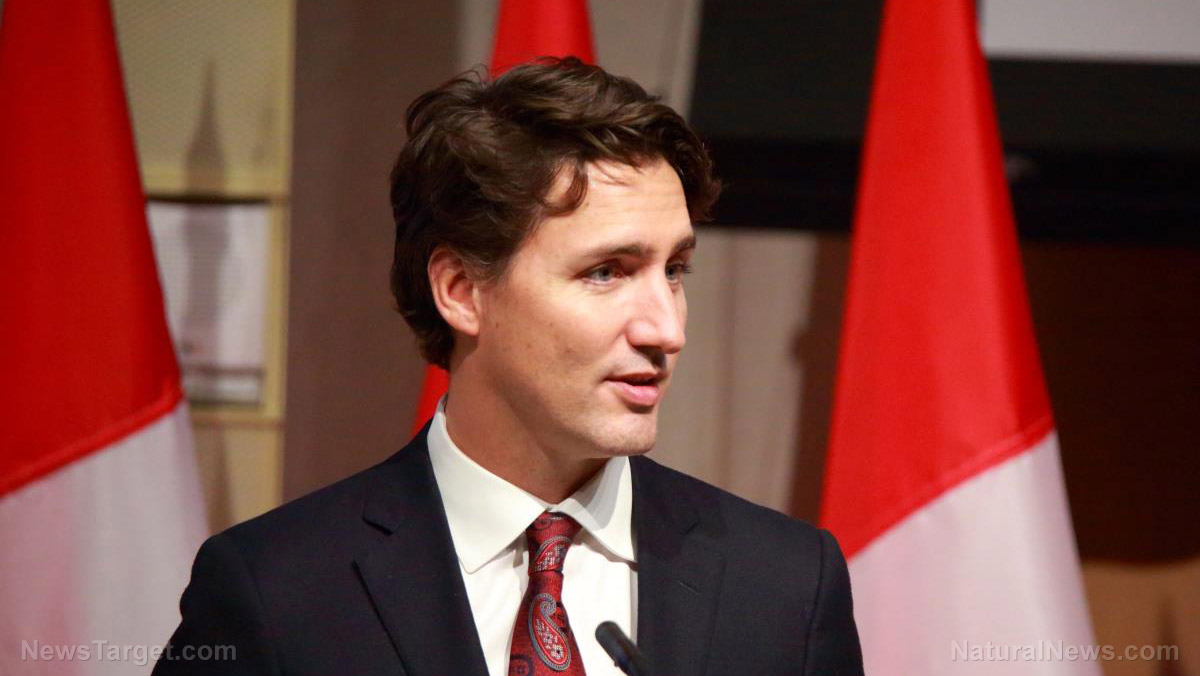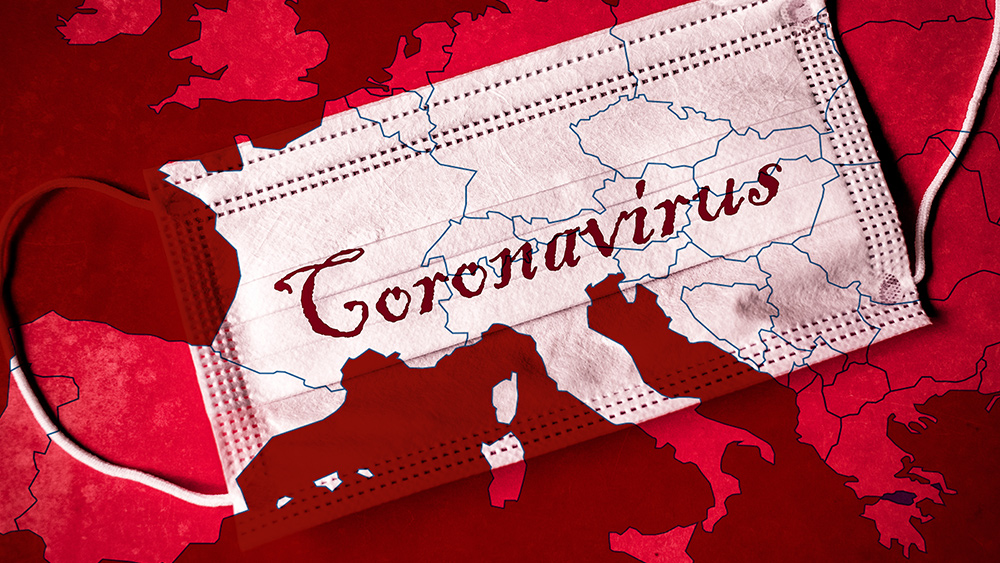Hospitals in London unable to cope due to SURGE in coronavirus cases
03/21/2020 / By Arsenio Toledo
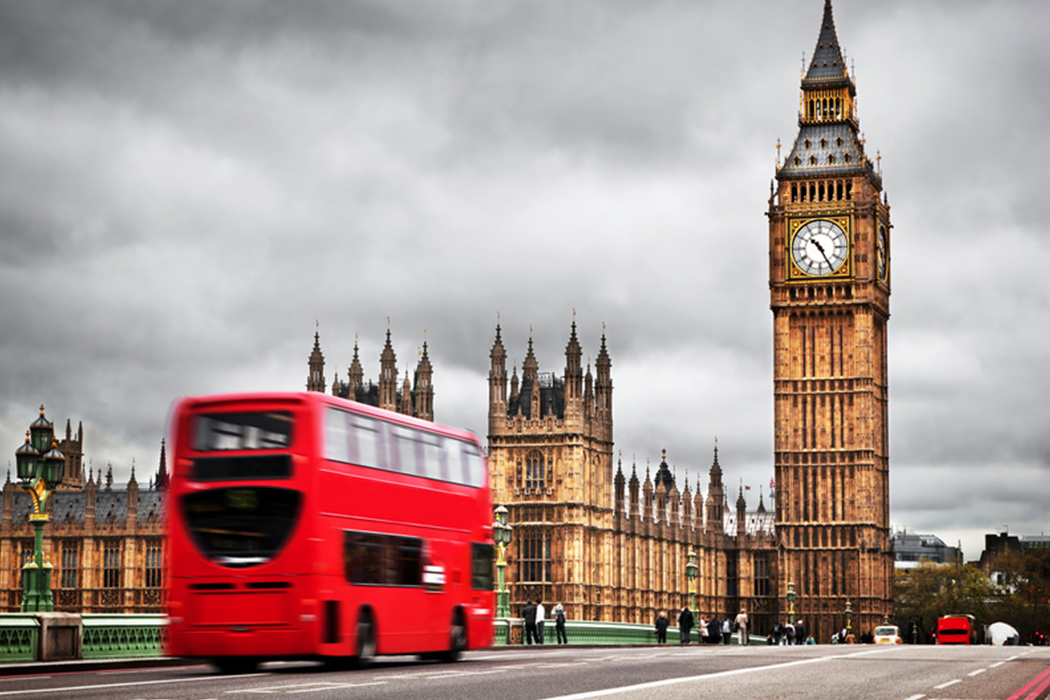
Northwick Park Hospital in London has declared a “critical incident” after it has run out of hospital beds for coronavirus patients.
“I am writing to let you know that we have this evening declared a “critical incident’ in relation to our critical care capacity at Northwick Park Hospital. This is due to an increasing number of patients with COVID-19,” the hospital’s administrators said in a statement sent out to neighboring hospitals, where they hope to transfer patients who need critical care.
“As part of our system resilience plans, we have contacted our partners in the North West London sector this evening to assist with the safe transfer of patients off of the Northwick Park site,” the hospital’s administrators’ statement read.
As of press time, there are 3,983 confirmed coronavirus cases in the United Kingdom, including 177 deaths. According to official data, 1,588 of the cases ?—nearly 40 percent of all cases in the country?—came from London.
Northwick Park is a 500-bed hospital in northwestern London that serves three of London’s 32 boroughs. So far, the hospital has reported six deaths related to COVID-19.
The surge of coronavirus cases in the U.K. has since drained Northwick Park’s capacity to care for new COVID-19 patients, the hospital said, as it used all of their beds and intensive care facilities. According to the hospital’s management, this prompted their declaration of a “critical incident.”
This presents a grave danger, as many other COVID-19 patients may not be able to get the treatment they need. As a result, London could see their mortality rate greatly increase over the next few days.
A senior director in the National Health Service (NHS) told reporters that, if the situation around the country continues to deteriorate, the country may have to enact clinical thresholds for admissions to intensive care units, similar to the situation in Italy, where doctors are being given the choice whether or not to administer intensive care treatment to patients over 80.
“This kind of coordinated, flexible response is one of the NHS’s strengths but with staff pulling out all the stops they need the public to play their part too, by following the expert guidance on washing your hands, staying at home and using health services responsibly,” a spokeswoman said.
BREAKING:
Major London hospital declares 'critical incident' after running out of ICU beds due to surge in Covid-19 casesOne senior director in the capital just told me – 'this is f**king petrifying'
Free to viewhttps://t.co/JtSzbumgxF
— Lawrence Dunhill (@LawrenceDunhill) March 20, 2020
Situation in and around London looking bleaker by the day
Other hospitals in London are also struggling to deal with the increasing number of patients that not only have COVID-19 but also, other severe conditions. The situation has gotten so dire that operating rooms in hospitals all over London have been converted into makeshift intensive care centers.
In addition, health workers across the metropolis are struggling to deal with new coronavirus patients?—many of whom have to be ventilated due to problems with their breathing.
Data obtained by The Guardian shows that the number of COVID-19 patients in intensive care units went from seven on March 6 to 93 on March 17?—a thirteenfold increase in patients.
Furthermore, of the 93 critical cases, 86 have been noted as requiring level three care or advanced respiratory support—a worrying development, according to doctors, as it suggests that Covid-19 was leaving many patients in need of life-or-death care
“A very high number of patients receiving critical care are needing level three care, in which they are anesthetized and have a tube put down their throat and the ventilator takes over the work of their lungs while they are unconscious,” one doctor said.
These numbers on critical care highlight the U.K.’s need to control the oncoming surge in coronavirus cases. However, these numbers only come from hospitals in southern London—which means that there could potentially be even more patients who are currently receiving critical care.
One doctor even warned that it was only a matter of time before the outbreak spirals out of control and the situation in Northwick Park becomes the norm in hospitals all over London.
Furthermore, doctors throughout the U.K. have raised concerns about the widespread shortages of personal protective equipment or PPEs such as masks and suits. These are extremely crucial to treating COVID-19 patients given how infectious the disease is.
Coronavirus cases in London by borough
That Central/W/NW/SW wedge though… 🥴 pic.twitter.com/5yWpMllgfp
— CROWD SHAMING SZN (@ashindestad) March 21, 2020
Prime Minister: Coronavirus spreading more rapidly in London
In a public address delivered on Monday, the U.K. Prime Minister Boris Johnson said that London was several weeks ahead of the rest of the country in terms of the spread of the coronavirus. He further advised Londoners to heed the advice of his government to work from home and to avoid any unnecessary social contact. (Related: EU proposes closing ALL borders, effectively placing mainland Europe under lockdown.)
In response to the surge of cases, London mayor Sadiq Khan said that several dozen stations of the London Underground, which serves as the public train system for the Greater London region, have been closed indefinitely.
Transport for London (TFL), Greater London’s transport authority, made the announcement on Wednesday evening and further urged people living in the capital to not travel, if at all possible.
“People should not be traveling, by any means, unless they really, really have to,” said Khan. “Londoners should be avoiding social interaction unless absolutely necessary and that means they should be avoiding using the transport network unless absolutely necessary.”
The London Underground has 270 stations all over Greater London. TFL stated that up to 40 stations can be closed from Thursday onwards. They further plan to reduce the London Underground’s service starting Monday to focus solely on providing public transport for critical workers like doctors and nurses.
Last Friday there were 167 cases in London and today there are 1,588.
This graph here shows just how quickly London is accelerating ahead of the rest of the country in terms of coronavirus cases per 100k people. pic.twitter.com/5nFTzp0giM
— Thomas Mackintosh (@T_Mackintosh) March 20, 2020
Sources include:
Tagged Under: Boris Johnson, Britain, China, Collapse, coronavirus, corruption, covid-19, deep state, Flu, government, Great Britain, Hospitals, infections, lockdown, London, National Health Service, NHS, outbreak, pandemic, quarantine, Sadiq Khan, stocks, superbugs, United Kingdom, virus



